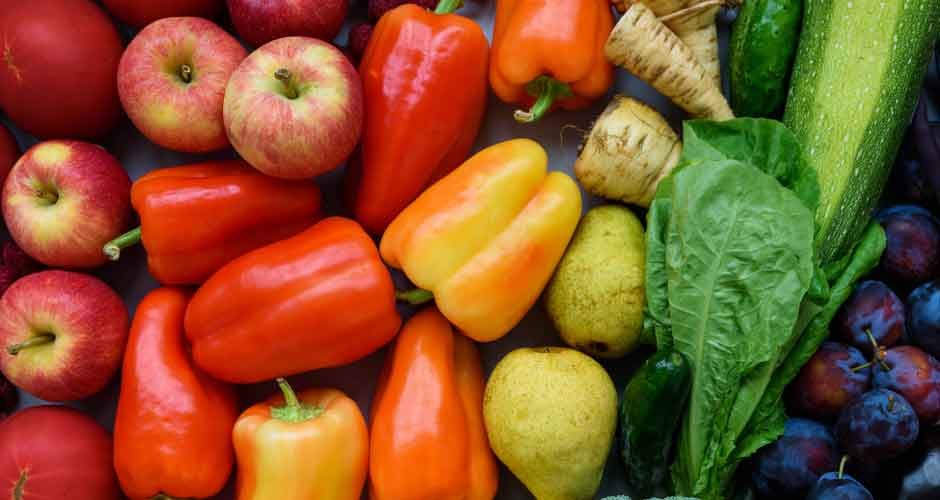The journey from plot to plate takes on new significance. With the rise of small-space gardens, cultivating one’s food has become a hobby and a pathway to optimal health. This article delves into the nutritional riches of homegrown produce and the holistic benefits it brings to individuals and communities alike.
Cultivating Nutrient Density
Home gardening goes beyond the mere act of growing plants; it’s about cultivating a bounty of nutrient-rich produce that nourishes the body from within. By taking control of the cultivation process, home gardeners create an environment ripe with essential vitamins, minerals, and antioxidants. This section explores how soil enrichment and peak freshness contribute to the nutritional density of homegrown fruits and vegetables.
Soil Enrichment and Nutrient-Rich Harvests
Home gardeners can control every aspect of the cultivation process, from seed selection to soil management. Prioritizing soil health through organic fertilizers and compost creates an environment that is ripe with essential nutrients. As a result, homegrown fruits and vegetables boast higher levels of vitamins, minerals, and antioxidants, contributing to their superior nutritional density.
Peak Freshness and Nutritional Integrity
Unlike their store-bought counterparts, homegrown produce undergoes minimal transit, allowing for harvest at peak ripeness. This immediacy ensures that vitamins and antioxidants remain intact, offering maximum nutritional benefit to consumers. The journey from garden to table preserves the nutritional integrity of the produce, enhancing its health-promoting properties.
Connecting with Nature
Tending to a garden is more than just a pastime; it’s a profound connection to the natural world. As individuals nurture plants from seedlings to maturity, they become attuned to the rhythms of the seasons and the cycles of life. This section delves into how gardening fosters mindfulness and stewardship, deepening appreciation for the food that sustains us and supporting biodiversity and ecosystem health.
Cultivating Mindfulness and Stewardship
Tending a garden fosters a profound connection to nature, as individuals become attuned to the rhythms of the seasons. Nurturing plants from seedlings to maturity instills a sense of mindfulness and stewardship, deepening appreciation for the food that sustains us. This connection to the land enriches the gardening experience and enhances overall well-being.
Supporting Biodiversity and Ecosystem Health
Home gardening promotes biodiversity by creating habitats for pollinators and beneficial insects. Through the cultivation of diverse fruits, vegetables, and herbs, gardeners contribute to ecological balance and support local ecosystems. This synergy between the garden and the environment strengthens biodiversity and enhances the resilience of the surrounding ecosystem.
Sustainable Practices and Community Impact
Home gardening extends beyond personal health to encompass broader environmental and social implications. By embracing sustainable practices, gardeners play a crucial role in reducing environmental impact and promoting community resilience. This section explores the environmental sustainability of home gardening and its role in fostering social cohesion and food security within communities.
Environmental Sustainability
Home gardeners play a vital role in environmental sustainability by reducing reliance on industrial agriculture and minimizing transportation-related emissions. The localized production of food reduces carbon footprints and conserves resources, contributing to a more sustainable food system. Home gardening serves as a model for environmentally conscious practices that prioritize planetary health.
Social Cohesion and Food Security
The sharing of surplus harvests within communities fosters social cohesion and food security. Home gardeners build resilience against global challenges by strengthening local food networks and promoting community self-sufficiency. The act of sharing food nurtures bonds between neighbors and cultivates a sense of belonging, enriching the fabric of community life.
Nutrient-Rich Picks for the Home Garden
Introduction to Nutrient-Rich Picks for the Home Garden:
Embarking on a home gardening journey opens up a world of possibilities for growing an array of nutrient-rich fruits and vegetables. Certain crops offer unique nutritional value, from vibrant greens to juicy berries, and are relatively easy to grow in home gardens. This section highlights some of these nutritional powerhouses, providing insights into their health benefits and cultivation tips.
Leafy Greens: Kale, Spinach, and Swiss Chard
Leafy greens are nutritional powerhouses packed with vitamins, minerals, and antioxidants. Kale, spinach, and Swiss chard are easy to grow and thrive in various climates. These greens are rich in vitamin K, vitamin C, iron, and fiber, promoting bone health, immune function, and digestion.
Tomatoes: Bursting with Lycopene
Tomatoes are a versatile and flavorful addition to any garden and offer a wealth of health benefits. Rich in lycopene, a potent antioxidant, tomatoes help protect against certain types of cancer and promote heart health. With proper support and regular watering, tomatoes can flourish in containers or garden beds.
Berries: Blueberries, Strawberries, and Raspberries
Berries are delicious and packed with vitamins, minerals, and antioxidants. Blueberries, strawberries, and raspberries are relatively low-maintenance and thrive in both ground and container gardens. These vibrant fruits are rich in vitamin C, fiber, and anthocyanins, which support brain, heart, and immune health.
Avocado: Creamy and Nutrient-Dense
Avocados are prized for their creamy texture and unique nutritional profile. While typically associated with warmer climates, dwarf avocado trees can thrive in pots and containers, making them suitable for home gardens in various regions. Rich in healthy fats, fiber, potassium, and vitamins E and K, avocados promote heart health, satiety, and skin health. Home gardeners can enjoy a bountiful harvest of this nutrient-rich fruit with proper care and attention to soil and sunlight.
Herbs: Basil, Mint, and Rosemary
Herbs add flavor and depth to dishes while offering a range of health benefits. Basil, mint, and rosemary are among the easiest herbs to grow at home, requiring little space and care. These aromatic herbs are rich in essential oils, vitamins, and antioxidants, aiding digestion, reducing inflammation, and boosting immunity.
Incorporating homegrown produce into one’s diet offers a gateway to optimal nutrition and well-being. From nutrient-rich harvests to fostering connections with nature and community, the benefits of home gardening are far-reaching. As individuals rediscover the joys of cultivating their food, they embark on a journey towards healthier, more sustainable lifestyles. Homegrown produce nourishes the body by nurturing health from the ground up.


